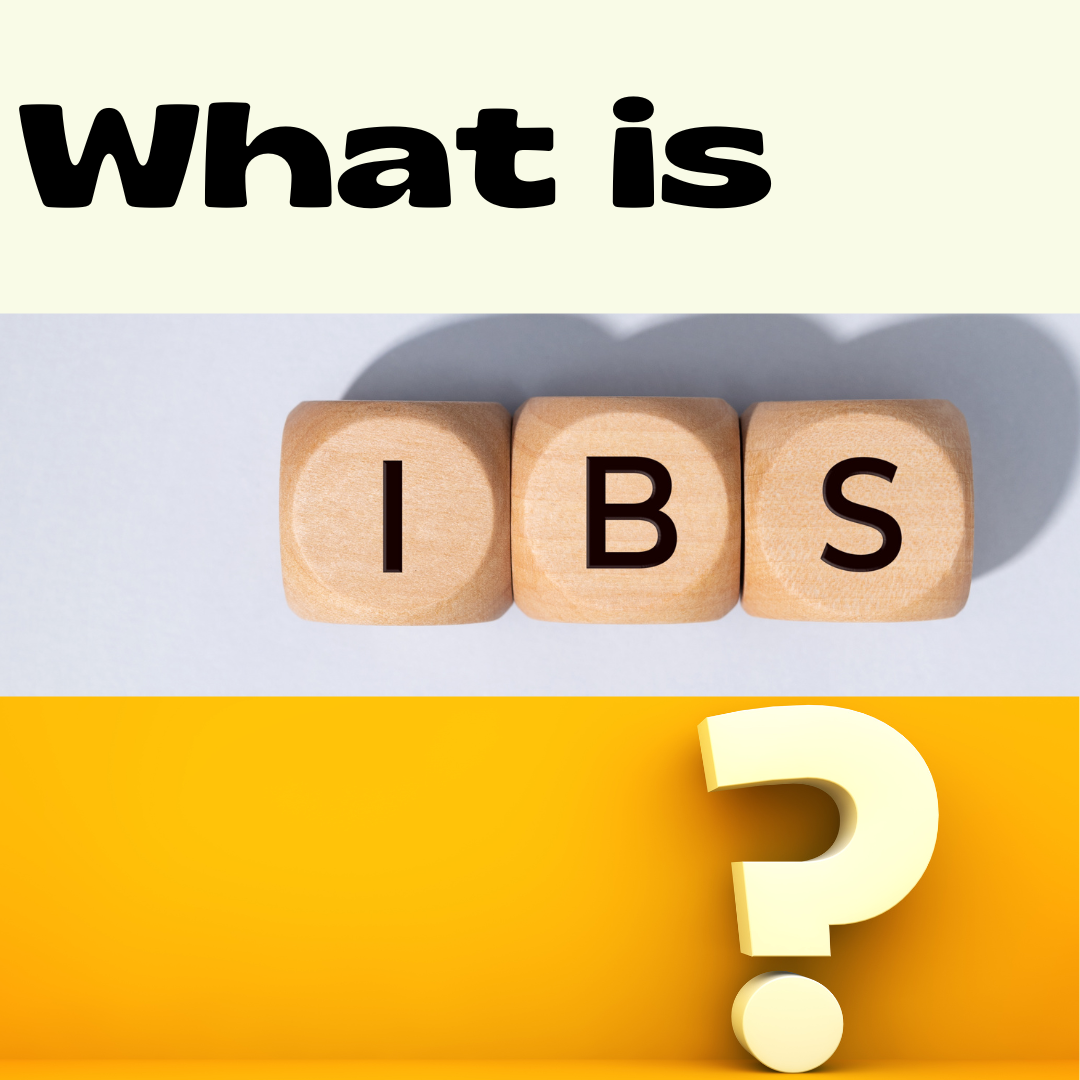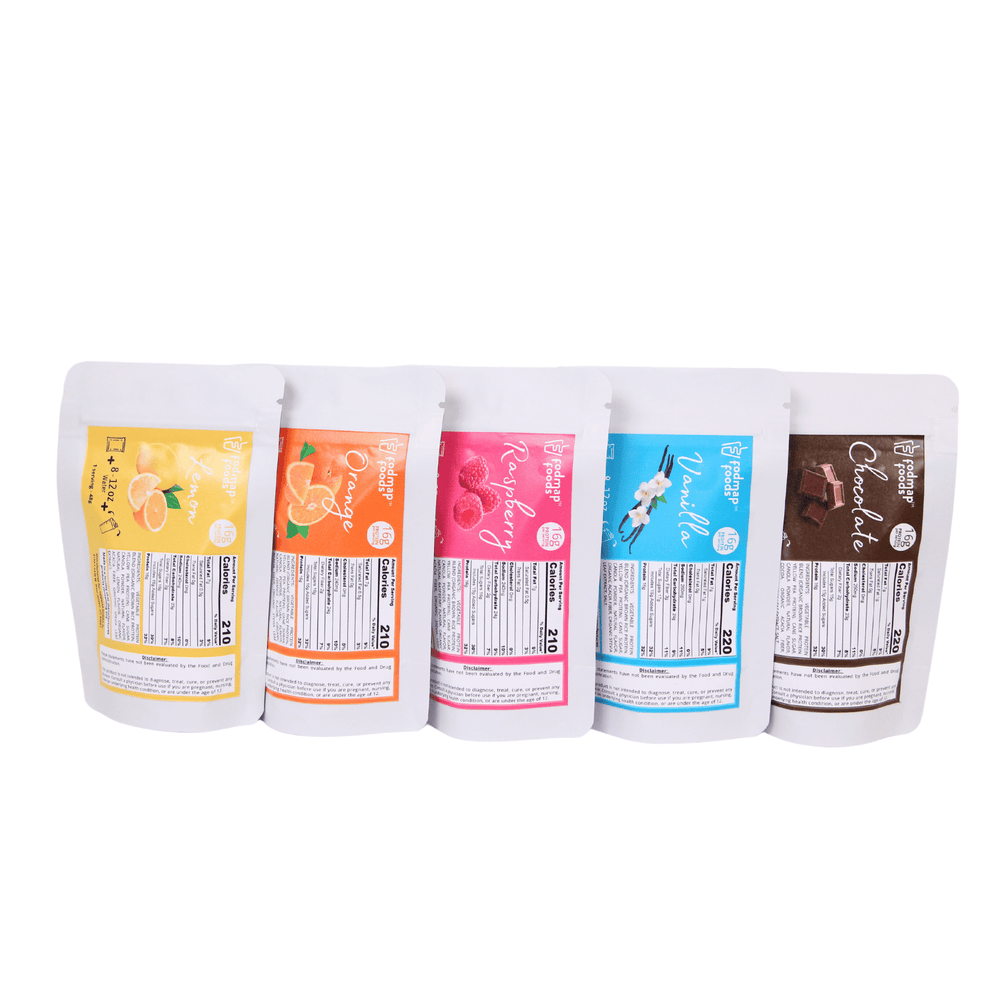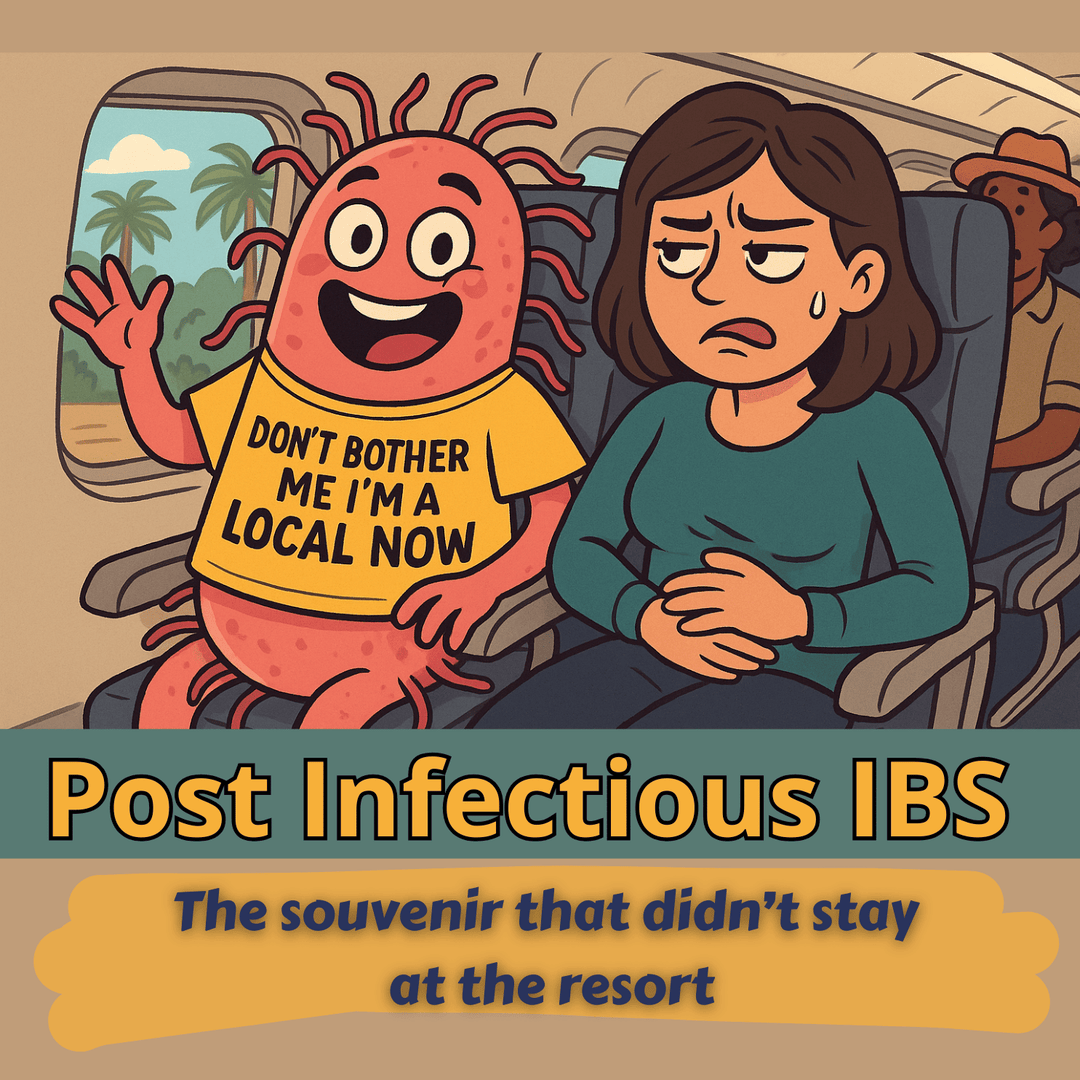What is IBS? Understand the Causes, Symptoms, and Treatments

Have you ever found yourself racing to the bathroom after a meal, or felt like your gut has turned into a circus? Welcome to the world of Irritable Bowel Syndrome, or IBS. This can be an overwhelming diagnosis to receive. Not only do you have to take time to study what is going on in your body, but you also how to figure out how to handle it. We want to start teaching all things IBS. Lets start with what it is, what causes it, common symptoms, and some easy treatment options. But what exactly is IBS? Let’s break it down, nice and easy.

What is IBS?
IBS, or Irritable Bowel Syndrome, is a common digestive disorder that affects the large intestine. Unlike other digestive conditions, IBS doesn’t cause permanent damage to the intestines, but it can make life very uncomfortable. Think of it as a moody stomach that overreacts to certain foods, stress, or just because it feels like it. Symptoms include cramping, abdominal pain, bloating, gas, and diarrhea or constipation, or both. Unfortunately, IBS is a chronic condition and you will need to learn to manage it long term.
What Happens Inside Your Body When You Have IBS?

When you have IBS, your digestive system behaves like it’s having a bit of a meltdown. Normally, food moves through the intestines in a smooth, coordinated fashion. However, in people with IBS, the nerves and muscles in the intestines don’t always work in harmony. It’s as if the gut's rhythm is out of sync, causing food to either rush through the intestines too quickly or slow down. This leads to uncomfortable symptoms like cramping, bloating, and irregular bowel movements.
IBS is often described as a “functional” gastrointestinal disorder, meaning there’s no visible damage or inflammation in the intestines. But even without physical damage, the gut can still be hypersensitive. This hypersensitivity might make ordinary digestion feel painful or cause your body to overreact to triggers like certain foods, stress, or even hormones.

IBS is classified into different categories. The three main categories are:
- IBS-C IBS with constipation
In IBS-C, the digestive system slows down too much, which makes it difficult for waste to move through the intestines. This can lead to infrequent bowel movements, hard or lumpy stools, and the uncomfortable feeling of being backed up. People with IBS-C often experience bloating and stomach pain because food sits in the gut longer than it should. This causes gas to build up. The irregular bowel movements are common with IBS C.
- IBS-D IBS with diarrhea
On the opposite end of the spectrum is IBS-D, where the digestive system moves too quickly. This fast transit through the intestines leads to frequent, loose, or watery stools. In IBS-D there is often urgency to use the bathroom . This rapid movement of waste through the intestines means the body doesn’t absorb as much water from the food, resulting in diarrhea. People with IBS-D may also experience cramping and gas. This means meals act as a trigger for sudden flare-ups.
- IBS-M IBS with mixed symptoms of constipation and diarrhea
IBS-M (Mixed IBS) combines both C & D. People with IBS-M experience alternating symptoms of both constipation and diarrhea. One week, they might feel constipated, and the next, they could be running to the bathroom with diarrhea. The unpredictability of this type can be particularly frustrating, as the body swings between extremes without warning.
Each type of IBS requires slightly different management strategies because the symptoms differ. For instance, someone with IBS-C may need more fiber in their diet, while someone with IBS-D might need to reduce their intake of certain trigger foods to avoid diarrhea and increase fluid intake to help manage the effects of dehydration. Managing IBS often requires trial and error, as everyone’s body reacts differently to food, stress, and treatments.

What Causes IBS?
Unfortunately, we don’t know exactly what causes IBS, but researchers have found a few commonalities. These include:
Gut-Brain Miscommunication and stress- A key factor with IBS is how your brain communicates with your gut. The gut and brain are closely connected. The gut-brain axis is a communication system that allows them to send signals back and forth. For people with IBS, the signals often get mixed up. This leads to an exaggerated response in the digestive system. Stress and anxiety can also heighten this brain-gut miscommunication, further worsening symptoms
Gut Sensitivity- For some people, the intestines are extra sensitive to certain foods, gas, or hormones, causing all sorts of digestive drama.
Food Triggers- Certain foods, especially those high in FODMAPs (Which we will cover more in depth in an upcoming blog) can set off symptoms like bloating, gas, and discomfort.

IBS Treatment Options:
IBS can feel overwhelming, but there are ways to manage it and make life a whole lot easier.
- Dietary Changes- One of the most common approaches is adjusting your diet. The Low FODMAP Diet, which reduces or eliminates certain sugars and gases that react negatively in the gut, has shown to be super helpful for many people with IBS. Our meal replacement shakes were designed specifically to help with the Low FODMAP Diet. They have been certified by Monash University and are a fast and easy meal.

- Medications- Depending on whether you have IBS with constipation or diarrhea, your doctor might prescribe meds to help regulate your bowel movements.
- Stress Management- Anxiety and stress play a surprisingly big role in IBS. Relaxation techniques like yoga, meditation, and exercise, can help reduce the symptoms triggered by stress.
- Probiotics- These “good” bacteria are often recommended to help balance the bacteria in your gut, although more research is still being done on how effective they are for the treatment of IBS. Some probiotics, post biotics, and prebiotics may be helpful, but others can make symptoms worse.
- Therapy- Therapy has been shown to help with the emotional stress that can exacerbate IBS. Sometimes, talking it out can help help your stomach feel better.
- Antibiotics- Researchers are starting to find that antibiotics can be beneficial for treating IBS, especially patients with IBS without constipation. This research is very proving to be very promising, especially when combined with therapy and stress management. However, using antibiotics must be considered carefully, as overuse can lead to antibiotic resistance. We are excited to see what further research and studies come out in the near future about the use of antibiotics in curing IBS.

IBS can be a pain—literally—but it’s manageable. By paying attention to your diet and managing stress, you can get the upper hand on IBS. The key is figuring out what triggers your symptoms and making adjustments accordingly. It may take a little time, but once you find the right mix of treatments, you’ll be back to feeling like yourself again.
For more in-depth information, check out these authoritative resources:
- [Mayo Clinic on IBS](https://www.mayoclinic.org/diseases-conditions/irritable-bowel-syndrome/symptoms-causes/syc-20360016)
- [Johns Hopkins Medicine IBS Overview](https://www.hopkinsmedicine.org/health/conditions-and-diseases/irritable-bowel-syndrome-ibs)
- [American College of Gastroenterology IBS Resource](Irritable Bowel Syndrome (IBS) | ACG








Leave a comment